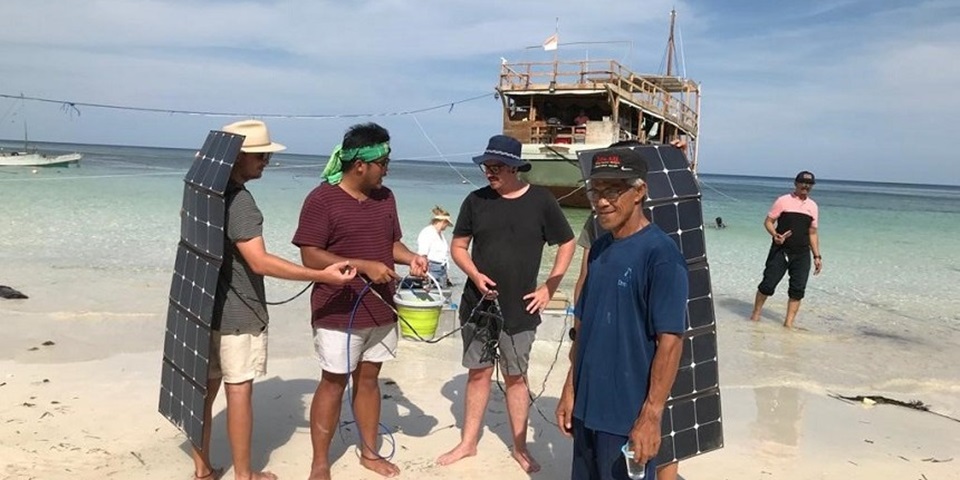News
Bringing clean water to where it’s needed most

Clean and accessible drinking water is something many of us take for granted. But that’s not the case for residents of islands off the coast of Massakar in South Sulawesi, Indonesia.
Currently, the low socio-economic island communities rely on a shallow aquifer to access clean water. But growing populations, an increase in tourism and rising sea levels are putting strain on that fragile aquifer, meaning the water is no longer potable. Many island populations have to bring in plastic bottled water for drinking at high cost and increased plastic pollution.Researchers from Murdoch University have presented local officials with a solution.
Dr Martin Anda, Academic Chair of Environmental Engineering at Murdoch University, and representatives from Moerk Water demonstrated a solar Photovoltaic Powered Reverse Osmosis (PVRO) water treatment unit to the Sulawesi Provincial Government and its district department heads.
Designed by Moerk Water in partnership with Murdoch University, the PVRO unit can immediately produce safe drinking water from sea water. The unit is powered by foldable solar panels, which are suitable for areas without access to regular electricity and eliminates the need to rely on expensive, polluting fossil fuels.
Dr Anda said the units are easy to operate and maintain, ensuring a clean and dependable source of fresh water for the long-term.
“Reverse osmosis is the most effective and simple technology for removing salts and contaminants from seawater,” he said.
“This solution can fulfil the daily drinking needs of whole communities.”
Students from Murdoch University recently travelled to Indonesia, demonstrating how the PVRO units work to the communities that will directly benefit from the technology.
Makassar was just one stop on the Indonesian visit, which was funded through the Federal Government’s New Colombo Plan. Murdoch environmental engineering students visited South Sulawesi to demonstrate the PVRO units in action. On several of the islands’ sandy beaches, they produced clean water for drinking.
The local people were amazed at the quality and “sweet water” produced by the kits, indicating they were hopeful the units would be available to them soon.
It is hoped that installation and training of the system will commence on each of the 12 islands at the end of 2020, with locals able to access the drinking water from December 2020.
News
Bringing clean water to where it’s needed most
Posted on